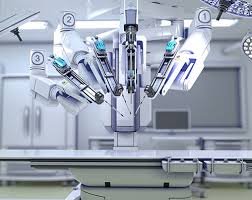Legal status of medical robots and artificial organs in Ukraine
The development of medical technologies, in particular medical robots and artificial organs, opens up new opportunities for diagnosis, treatment and rehabilitation of patients. However, their use also raises a number of legal issues that require proper regulation. In this article, we examine the legal position of medical robots and artificial organs in Ukraine, including certification, liability and ethical issues.
Legal framework
The Law of Ukraine "On the Fundamentals of the Legislation of Ukraine on Health Protection"
This law is the main legal act regulating health care in Ukraine. It establishes general principles of medical care, rights and obligations of patients and medical workers, as well as requirements for medical technologies.
Law of Ukraine "On Medicinal Products"
This law regulates issues related to the turnover of medicines, including medical devices, which may include medical works and artificial organs. It determines the procedure for their state registration, certification and quality control. You may be interested in the following articles: consultation of a lawyer, consultation of a lawyer, analysis of documents, legal analysis of the situation, written advice, verification of documents by a lawyer, lawyers documents, assistance of a lawyer online, lawyer online, legal opinion, legal opinion of a lawyer, lawyer online.
Resolutions of the Cabinet of Ministers of Ukraine
The Cabinet of Ministers issues various regulations governing specific aspects of the use of medical technologies, including requirements for the safety and effectiveness of medical devices.
Certification and registration
Medical robots
Medical robots used for diagnosis, treatment or surgery must undergo a certification and registration procedure in Ukraine. This includes:
Conformity Assessment: Conducting tests to confirm the safety and effectiveness of the medical robot in accordance with established standards.
State Registration: Upon successful completion of conformity assessment, the medical robot is subject to state registration with the Ministry of Health of Ukraine.
Monitoring and quality control: After introduction into circulation, the medical robot is subject to continuous monitoring to control its quality and safety.
Artificial Organs
Artificial organs such as artificial hearts, prostheses, and implants must also go through a certification and registration process. This includes:
Clinical trials: Conducting clinical trials to confirm the efficacy and safety of the artificial organ.
State registration: Registration of the artificial organ with the Ministry of Health of Ukraine after successful completion of clinical trials.
Post-marketing surveillance: Continuous monitoring of the use of the artificial organ to identify possible side effects and improve safety.
Responsibility
Manufacturers
Manufacturers of medical robots and artificial organs are responsible for the quality and safety of their products. They must ensure that their products meet the established standards and conduct the necessary tests before they are introduced to the market.
Medical institutions
Medical facilities that use medical robots and artificial organs are required to ensure proper operation and maintenance of such devices. They must also inform patients about the possible risks and benefits of using the latest medical technologies.
Medical professionals
Medical professionals who use medical robots and artificial organs must be trained and qualified. They are responsible for the correct use of these technologies.

































